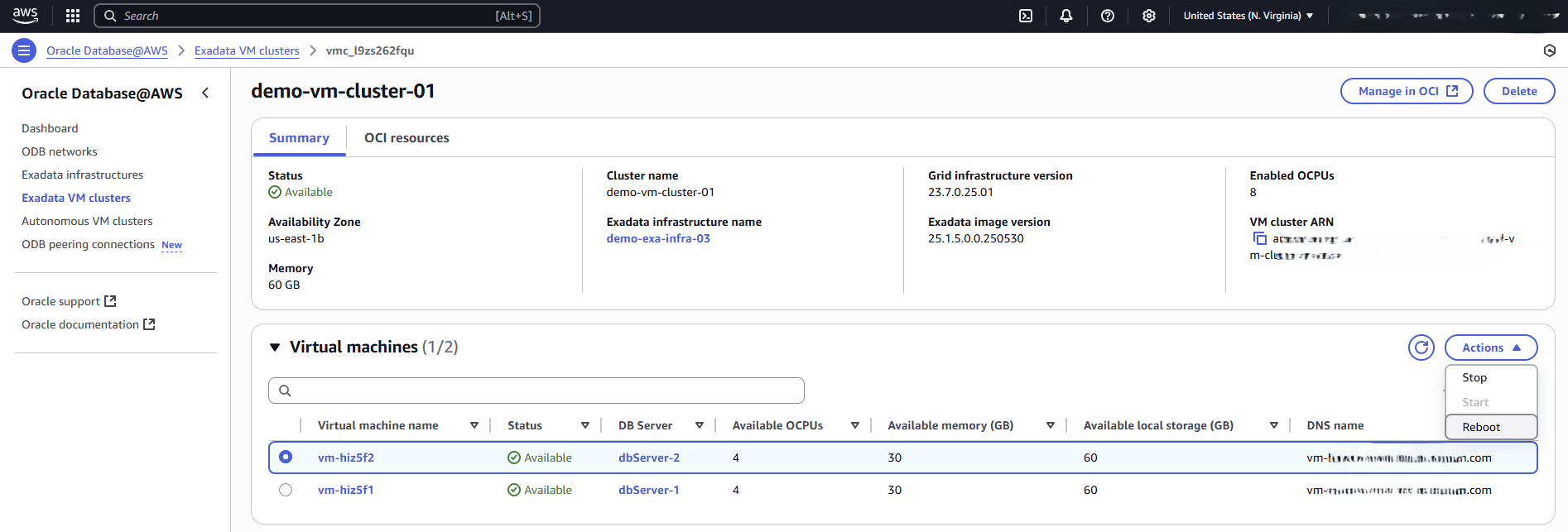Exadata VM Cluster
Learn how to modify an Exadata VM Cluster and tags from Oracle Database@AWS console.
Exadata VM Cluster
These are the steps to modify an Exadata VM Cluster.- From the Oracle Database@AWS dashboard, select Exadata VM clusters, and then select your Exadata VM Cluster that you want to modify from the Exadata VM clusters list.
- Navigate to Virtual machines section, and expand the section to view the details of your Virtual machines.
- Select the Virtual machines link form the list, and then select the Actions button. You can perform the Stop, Start and Reboot steps.
- To Stop a virtual machine (VM), select the Stop from the Actions list, and then select the Stop DB node.
- To Start a virtual machine (VM), select the Start from the Actions list, and then select the Start DB node.
- To Reboot a virtual machine (VM), select the Reboot from the Actions list, and then select the Reboot DB node.

Tags
These are the steps to modify Tags within your Exadata VM Cluster.- From the Oracle Database@AWS dashboard, select Exadata VM clusters.
- From the Exadata VM clusters list, select your Exadata VM Cluster where you want to add or modify a tag.
- Select the Tags tab and then select the Manage tags button.
- From the Manage tags page, you can complete the following substeps:
- You can modify your existing Key and Value fields.
- Alternatively, you can add a new tag by selecting the Add new tag button, and then enter your Key and Value pair.
Note
The Value field is optional. - Once you modify your information, select the Save button.

There is currently no content for this page. Oracle Database@AWS team intends to add content here, and this placeholder text is provided until that text is added. The Oracle Database@AWS team is excited about future new features, enhancements, and fixes to this product and this accompanying documentation. We strongly recommend you watch this page for those updates.
There is currently no content for this page. Oracle Database@AWS team intends to add content here, and this placeholder text is provided until that text is added. The Oracle Database@AWS team is excited about future new features, enhancements, and fixes to this product and this accompanying documentation. We strongly recommend you watch this page for those updates.
There is currently no content for this page. Oracle Database@AWS team intends to add content here, and this placeholder text is provided until that text is added. The Oracle Database@AWS team is excited about future new features, enhancements, and fixes to this product and this accompanying documentation. We strongly recommend you watch this page for those updates.
There is currently no content for this page. Oracle Database@AWS team intends to add content here, and this placeholder text is provided until that text is added. The Oracle Database@AWS team is excited about future new features, enhancements, and fixes to this product and this accompanying documentation. We strongly recommend you watch this page for those updates.